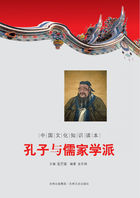After long and fruitless negotiations with Ormond the war was renewed (1644). Representatives from France and Spain had arrived in Kilkenny, and it was thought that if the Pope could be induced to send a nuncio such a measure would strengthen the hands of the Irish ambassadors on the Continent. At the request of Sir Richard Bellings, Secretary to the Supreme Council, Innocent X. consented to send Giovanni Battista Rinuccini as his representative to Ireland (1645). The latter landed at Kenmare in October, and proceeded almost immediately to Kilkenny.
In the meantime Charles I. was being hard pressed in England, and as he could have no hope of inducing Ormond to agree to such terms as would satisfy the Catholics of Ireland, he commissioned the Earl of Glamorgan, himself a Catholic, and closely connected with some of the Irish families by marriage, to go to Kilkenny and to procure assistance from the Catholic Confederation at all costs. Shortly after his arrival he concluded a treaty in the name of the king (Aug. 1645)in which he guaranteed "the free and public exercise of the Roman Catholic religion." All churches possessed by the Irish Catholics at any time since October 1641 were to be left in their hands, and "all churches in Ireland other than such as are now actually enjoyed by his Majesty's Protestant subjects" were to be given back to the Catholics.
All jurisdiction claimed by Protestant bishops or ministers over Irish Catholics was to be abolished, and all temporalities, possessed by the Catholic clergy since October 1641, were to be retained by them, two-thirds of the income, however, to be paid to the king during the continuance of the war. Charles had already addressed a letter to the nuncio promising to carry out whatever terms Glamorgan would concede, and adding the hope that though this was the first letter he had ever written to any minister of the Pope it would not be the last.[56] The terms were to be kept a secret, but in October 1645 Archbishop O'Queely of Tuam was killed near Sligo in a skirmish between the Confederate and Parliamentary forces, and a copy of the treaty which he had in his possession fell into the hands of the enemy. As soon as it was published it created a great sensation in England, and Charles immediately repudiated it. Glamorgan was arrested in Dublin by Ormond, but was released after a few weeks, and returned coolly to Kilkenny to conduct further negotiations.
Since his arrival in Kilkenny (1645) the nuncio was anxious to break off negotiations with Ormond, and to devote all the energies of the country to the prosecution of the war. But the Anglo-Irish of the Pale were bent upon accepting any terms that Ormond might offer; and soon the Supreme Council was divided into two sections, one favouring the nuncio, the other supporting Ormond. Negotiations had been opened directly with Rome by Queen Henrietta through her agent Sir Kenelm Digby. In return for promises of men and money the latter signed a treaty even much more favourable to the Irish Catholics than that which had been concluded with Glamorgan (1645), but as the original of this treaty had not come to hand, and as it was feared that there was little hope of its being put in force, the Supreme Council patched up an agreement with Ormond (March 1646). Although the latter had got a free hand from the king he granted very little to the Catholics. The oath of supremacy was to be abolished in the next Parliament, as were to be also all statutory penalties and disabilities; "his Majesty's Catholic subjects were to be recommended to his Majesty's favour for further concessions;" all educational disabilities of Catholics were to be removed, and all offices, civil and military, were to be thrown open to them. Even this treaty was kept a secret, but in the meantime the Confederation should send troops to the assistance of the king.
But before the troops could be sent Charles was driven to take refuge with the Scots at Newcastle (May 1646), from which place he wrote forbidding Ormond "to proceed further in treaty with the rebels or to make any conditions with them."[57]
Notwithstanding Rinuccini's earnest entreaties the majority of the Supreme Council insisted on accepting Ormond's terms. The Confederation had been so weakened by dissensions that General Monro thought he could march south and capture Kilkenny, but at Benburb he found his way barred by the forces of O'Neill, and he was obliged to retreat to Coleraine, having left a great portion of his army dead on the field, and his standards, guns, and supplies in the hands of O'Neill (5 June 1646). The news of the great victory was brought to the nuncio at Limerick, where the captured banners were carried in procession through the streets and deposited in the cathedral. General Preston had also scored some successes in Connaught, so that once again the tide seemed to have turned in favour of the Confederates.
Rinuccini was more than ever determined to refuse half measures, such as were being offered by the terms of Ormond's treaty. He summoned a meeting of the bishops in Waterford (Aug. 1646), and after long discussion it was agreed that those who accepted Ormond's terms were guilty of perjury, because they had thereby broken the terms of the oath of confederation. According to this oath the members had pledged themselves to be content with nothing less than the free and public exercise of their religion, while Ormond left nearly everything to the good-will of the king, from whom nothing could be expected considering the state of affairs in England. In spite of all remonstrances the Supreme Council published the Peace in Kilkenny, but their messengers were refused admittance into several of the cities of the South.















